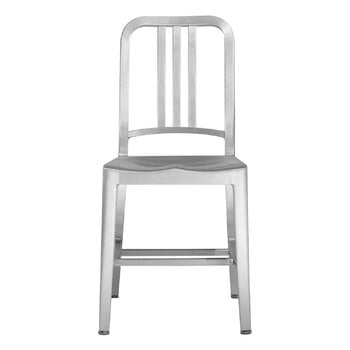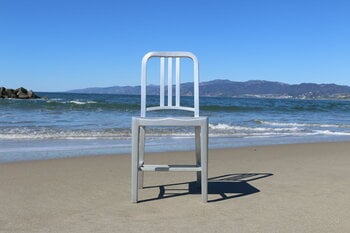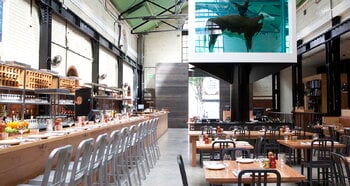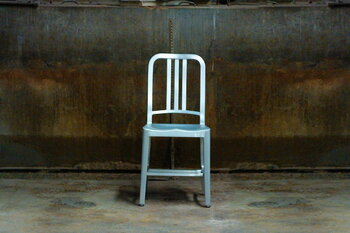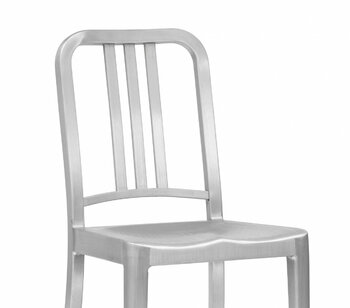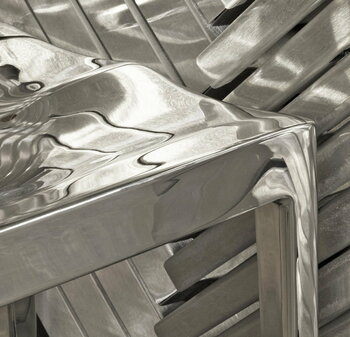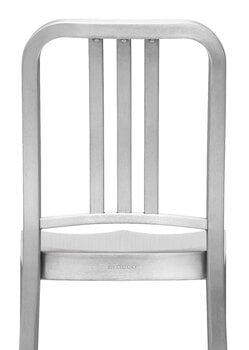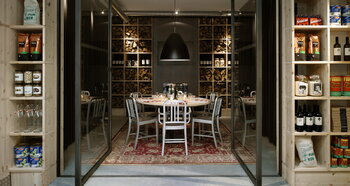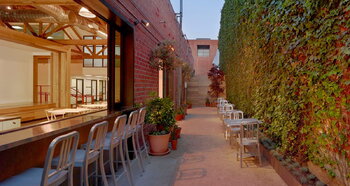Emeco’s 1006 Navy chair is an extremely durable and functional choice for dining rooms as well as outdoor areas. The chair is handcrafted from recycled aluminium, and the manufacturing process has 77 different steps in total. The 1006 Navy chair has a lifetime warranty.
Wilton C. Dinges, the founder of Emeco, designed the original Navy chairs in 1944 for the submarines of the United States Navy. Emeco was commissioned by the U.S. government to produce chairs that would withstand the ruthless sea conditions. Thanks to their modern and minimalist look, the Navy chairs are an excellent choice also for contemporary interiors and a wide range of styles. All Emeco products are manufactured in the USA, using mostly recycled materials.
